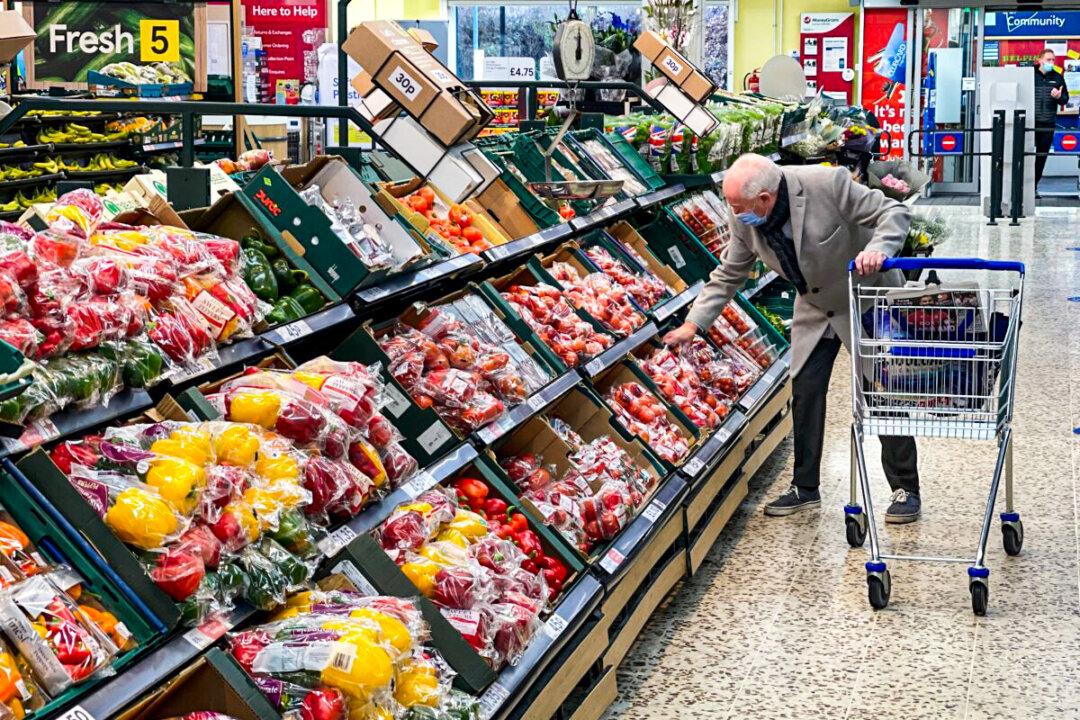Grocery price inflation in the UK has hit its highest level in 10 years, data company Kantar has revealed.
The cost of groceries is now 5.2 percent higher than it was a year ago, and the price inflation over the latest four weeks is the highest since April 2012, according to the latest data.





